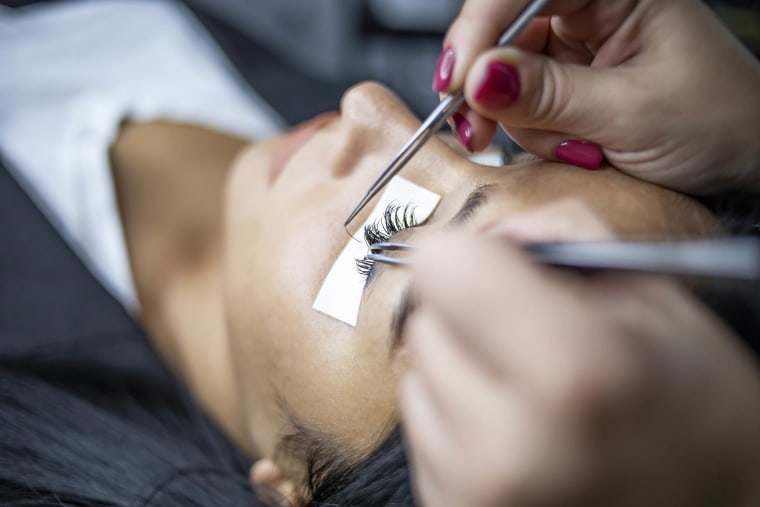News
Eyelash extensions are recent beauty trend that's here to stay. Doctors share the health risks and how to get longer lashes, safely.

The extensions are made from a range of materials including synthetic fibers like acrylic, real mink or sable fur, and silk, experts previously told TODAY.com.
“They come in different shapes, sizes and colors,” says Brissette, adding that they may be applied to each eyelash or spaced out for a more natural look. Some people are allergic to animal fur, so for these people, synthetic lashes work best, Jennifer Garcia, lash stylist at Maud’s of Beverly Hills, previously told TODAY.com.
Eyelash extensions are usually applied by certified technicians or estheticians in a licensed salon, says Brissette. However, there are an increasing number of home eyelash extension services cropping up and do-it-yourself kits available on the market.
But the experts agree eyelash extensions should always be applied by a certified or licensed professional. “Make sure you’re going to a reputable place and the tools (are) cleaned properly,” says Brissette.
Home services or DIY kits are not worth the risk, the experts note.
Since eyelash extensions are glued to the natural eyelashes, they typically last until the eyelashes fall out, which happens in cycles like the hair on your head.
"The lifecycle of eyelashes is about two months, so if you're getting them glued to the base of the lash, on average the (lash extensions) last about (six to eight weeks)," says Brissette.
Eyelash extensions can be safe if you go to an experienced technician using sanitized tools and if you do it in moderation, Dr. Shari Lipner, a dermatologist at Weill Cornell Medicine, tells TODAY.com.
Brissette agrees: “My general consensus is that it’s safe to do for special occasions, but lash extensions shouldn’t be something you’re doing all the time or consistently reapplying with no breaks.”
There also some things to keep in mind make sure you’re protecting your eyes as much as possible while using eyelash extensions.
For example, if you have skin sensitivities or allergies, Brissette recommends trying a patch test with the adhesive first, which involves applying a small amount of the glue to a different part of the body and waiting 24 hours to see if there is a reaction.
If you have a reaction, Lipner recommends seeing a board-certified dermatologist to get an allergy test and figure out what component of the extension or glue causing the reaction.
You should also routinely clean the extensions to keep the eyelashes healthy — but make sure you’re using a cleanser formulated for the eye area and lash extensions since some have oils that can weaken the glue, Brissette explains. Wash over the closed eyelids every day to keep bacteria at a minimum.